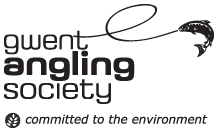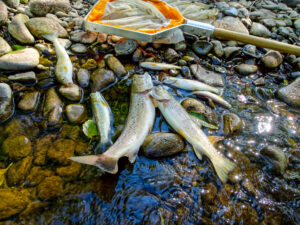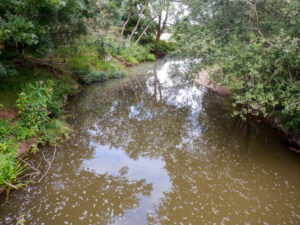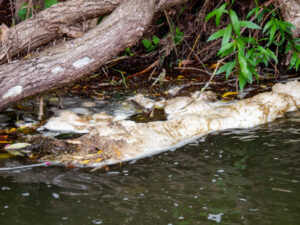Pollution of Welsh rivers continues to show no sign of decline. Each year, we see acute pollution incidents that cause fish kills and destroy or cause long-term damage to fisheries and the surrounding environment. In 2016 and 2020, the Gwent Angling Society’s waters on the Powys Llynfi suffered such devastation.
Detecting Pollution
Smell can be a useful diagnostic indicator of a pollutant’s nature which can help identify and locate the polluter, so please advise NRW and the club accordingly.
The smell of sewage, slurry, oil and kerosene are distinctive and well known to most people. The smell of anaerobic digestate will be less familiar and can vary depending on digester feedstocks. It can smell of manure (often cows or poultry), decaying vegetation (like the bottom of ponds or stagnant ditches), and ammonia, and may also smell of rotten eggs. Discoloured water and unusual amounts of foam should also be reported, as well as the sight of dead, distressed or dying fish.
Reporting Pollution
If you see evidence of pollution anywhere in Wales please follow the below procedure:
-
Step 1
- Report it immediately to National Resources Wales via the pollution hotline (0300 065 3000) and request an incident reference number.
-
Step 2
- If the pollution incident has occurred on or near a Gwent Angling Society Water, report it immediately to the Gwent Angling Society via the below contacts. We will request the NRW incident reference number and mobilise the local responders.
- Gareth Lewis (Secretary) – 07540 813399
- Mark Roberts (Trustee) – 01495 312508 or 07712 578764
- If the pollution incident has occurred on or near a Gwent Angling Society Water, report it immediately to the Gwent Angling Society via the below contacts. We will request the NRW incident reference number and mobilise the local responders.
More information is available via the National Resources Wales Report an Incident page.





